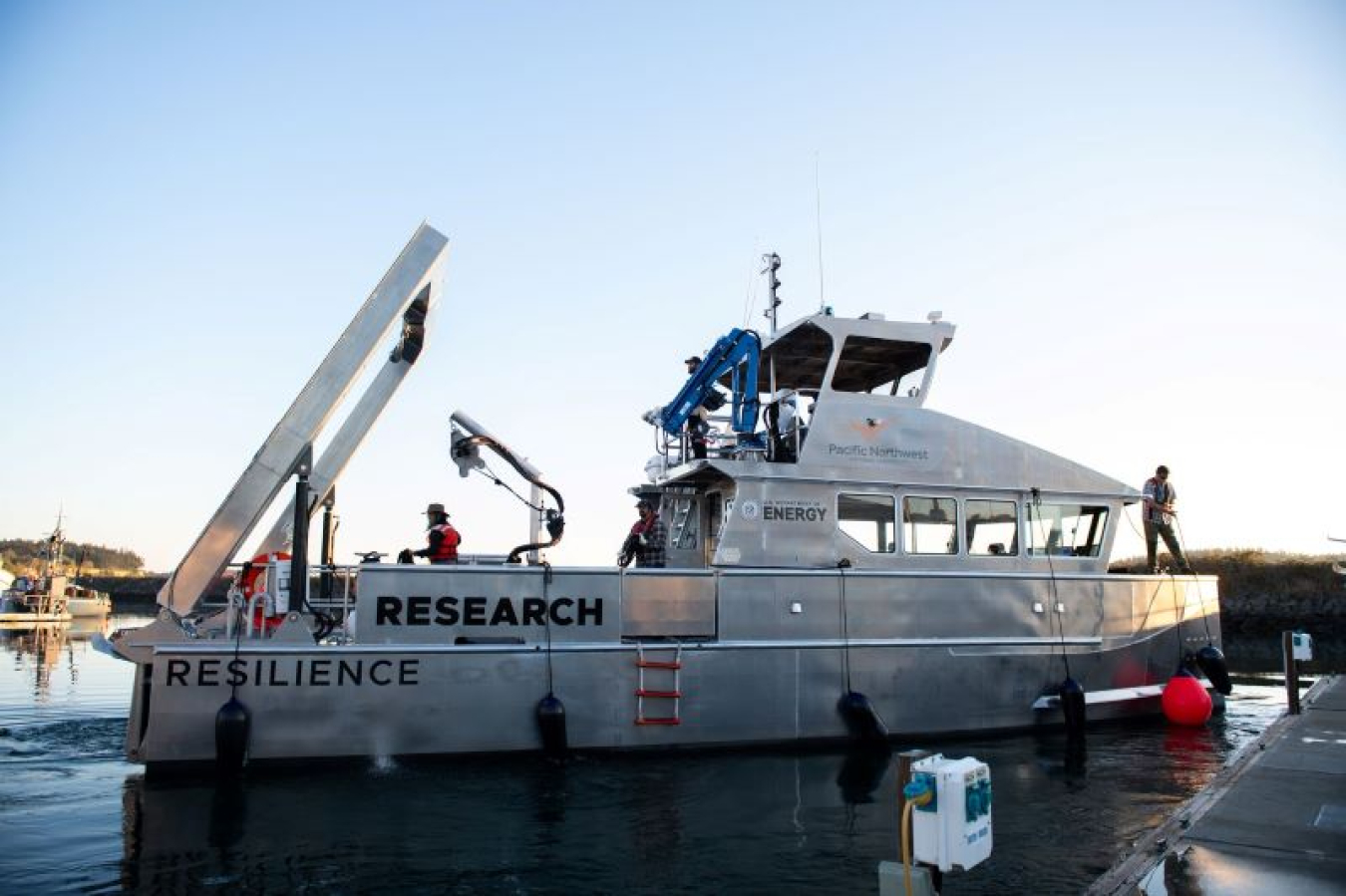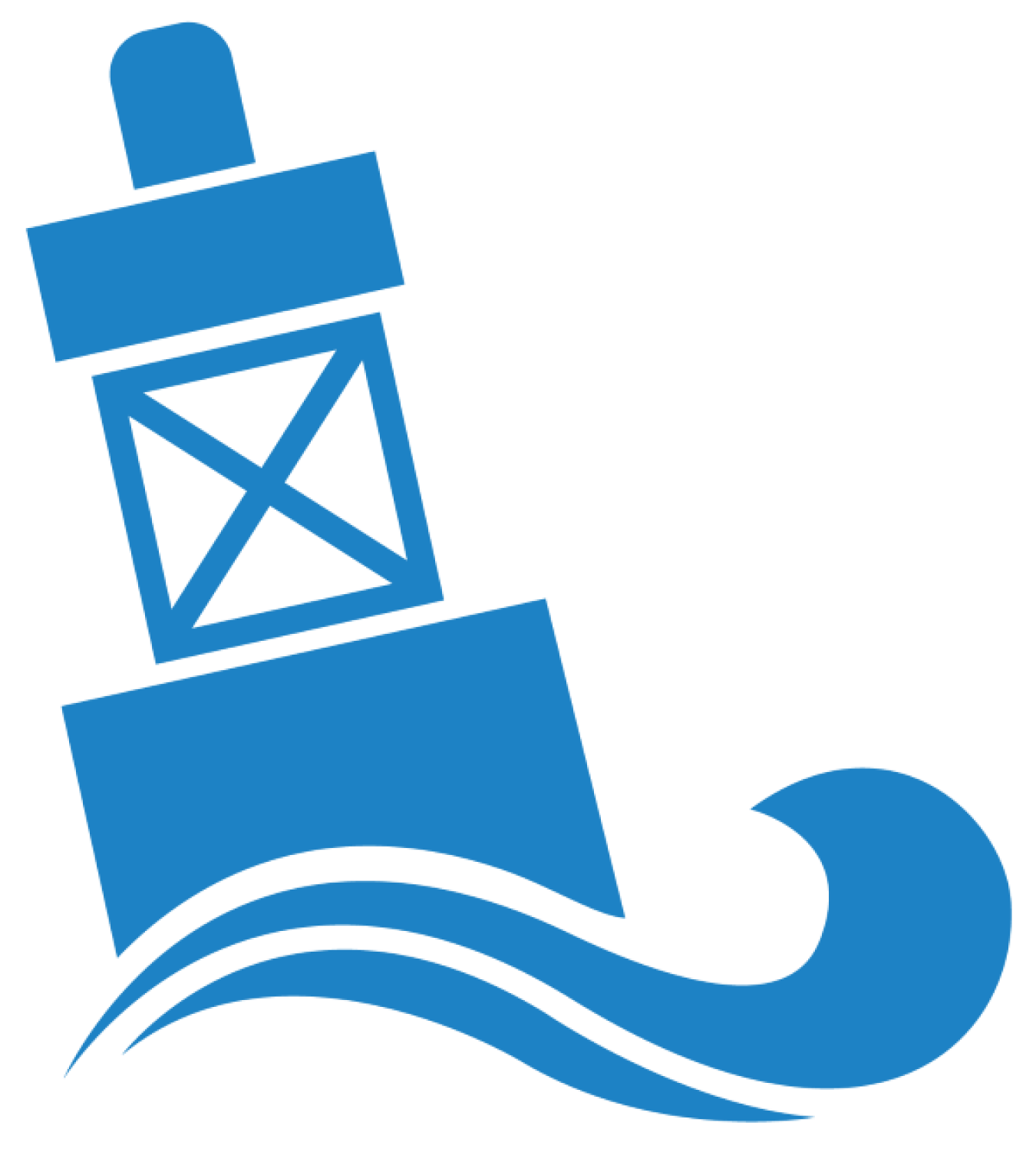Pacific Northwest National Laboratory commissioned DOE’s first hybrid diesel-electric research vessel, the RV Resilience, demonstrating the decarbonization potential for marine transportation while simultaneously supporting ocean research.
Water Power Technologies Office
October 31, 2024Marine Energy Program
Foundational Research and Development
Project Name: Hybrid Research Vessel to Serve and Represent the Next Generation of Blue Economy Technology
Project Team: Pacific Northwest National Laboratory (lead), Snow & Company, Incat Crowther, Pacific Power Group
Lead Recipient Location: Sequim Bay, Washington
With funding from the U.S. Department of Energy’s (DOE's) Water Power Technologies Office (WPTO), Pacific Northwest National Laboratory (PNNL) constructed and commissioned DOE’s first hybrid diesel-electric research vessel known as the RV Resilience. The vessel demonstrates the decarbonization potential for marine transportation while simultaneously supporting ocean research and novel marine energy technologies.
In September 2024, PNNL hosted a dedication ceremony for the vessel at the lab’s Sequim campus. The event marked a new era of marine energy research at PNNL-Sequim, Resilience’s home port and a regional hub for marine energy research, development, and testing. Speakers included representatives from Washington’s congressional delegation, the Washington House of Representatives, DOE, and PNNL.

The 50-foot Resilience is equipped with observation stations, laboratory space, a spacious deck, and an A-frame and crane that allows researchers to transport and deploy research equipment in the water around the Pacific Northwest. The vessel has a 5,000-pound payload and can enable many research capabilities, including marine power installations, environmental impact studies, acoustic testing and surveys, marine mammal and bird observations, autonomous vehicle launch and recovery, and electrified vessel charging systems.
The Resilience was built in collaboration with PNNL by Snow & Company in Seattle, Washington, and designed by Incat Crowther and Pacific Power Group. The vessel was specially designed to support a tailor-made hybrid drive and included advanced safety systems to ensure researchers’ safety. The Resilience can cruise comfortably at 20 knots using diesel engines and up to 7 knots on battery power. When powered by the onboard battery bank, the vessel is nearly silent, runs without emissions, and allows over four hours of research operations. This minimizes noise pollution for marine wildlife and enables more sensitive acoustic measurements during research operations.
Currently, the team is finalizing operating procedures and training for the Resilience crew. The vessel’s first research endeavor is intended to fully characterize the vessel’s performance and characteristics in different hybrid modes.
Clean Energy in Action: A First of its Kind for Marine Energy Research
An installment in EERE’s Clean Energy in Action series, this video highlights how the RV Resilience hybrid research vessel demonstrates the potential for zero-emission marine transportation that supports ocean research.


